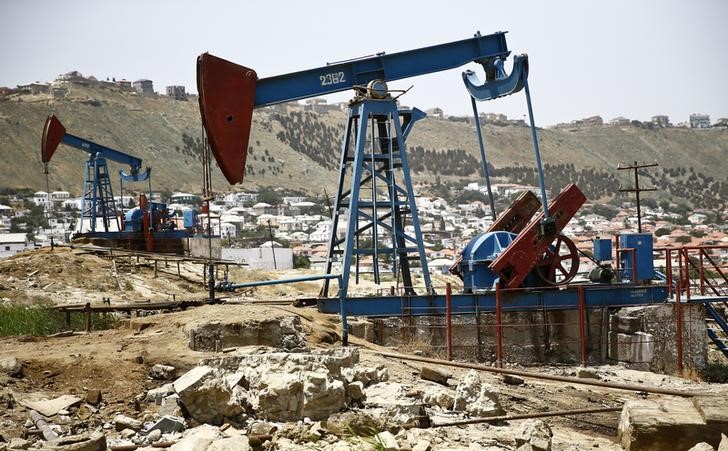Investing.com - Oil prices headed lower in European morning trade on Friday as concerns about a China-U.S. trade war and the return of Libyan oil to the market offset a warning about a shortage in global crude supplies despite increases in production from the Organization of Petroleum Exporting Countries.
New York-traded West Texas Intermediate crude futures fell 16 cents or 0.23% to $70.17 a barrel by 4:12 AM ET (8:12GMT).
Meanwhile, Brent crude futures, the benchmark for oil prices outside the U.S., traded down 73 cents or 0.98%, to $73.72.
The Libya's National Oil Corp had announced on Wednesday that four export terminals were being reopened and allowed the return of as much as 850,000 barrels per day of oil into the markets, ending a standoff that had shut down most of Libya's oil output.
The International Energy Agency, however, raised expectations for a global shortage in crude supplies on Thursday as the energy watchdog warned of a potential capacity crunch amid a rise in output from Middle East Gulf countries and Russia.
"Rising production from Middle East Gulf countries and Russia, welcome though it is, comes at the expense of the world's spare capacity cushion, which might be stretched to the limit," the Paris-based agency said in its monthly report.
Saudi Arabia increased production by 430,000 barrels a day in June, the IEA said. That, however, was offset somewhat by falling Iranian exports, as European traders trimmed their imports ahead of U.S. sanctions on Tehran, which come into effect in November.
"In June, Iran's crude exports fell back by about 230,000 barrels a day, albeit from a relatively high level in May, as European purchases dropped by nearly 50%," the agency said.
Trade dispute China and the U.S. also remained in focus. Treasury Secretary Steven Mnuchin said on Thursday that he and the administration are “available” for discussion, but China must first agree to deeper economic reforms.
“To the extent that China wants to make structural changes, I and the administration are available,” Mnuchin said on Thursday. “We are not advocating tariffs. We are advocating fair trade.”
China’s Vice Minister of Commerce Wang Shouwen also said on Thursday that “when we have a trade problem, we should talk about it.”
Later on Friday, traders await the latest Baker Hughes’ data on U.S. production. The number of active U.S. rigs drilling for oil rose by five to 863 last week.
Although that was the first increase in three weeks, the U.S. rig count, an early indicator of future output, is much higher than a year ago when 763 rigs were active as energy companies have been ramping up production in tandem with OPEC's past efforts to cut global output over the past year-and-a-half.
In other energy trading, gasoline futures fell 0.79% $2.0572 a gallon by 4:13 AM ET (8:13GMT), while heating oil lost 0.81% to $2.1060 a gallon.
Lastly, natural gas futures dipped 0.04% to $2.796 per million British thermal units.
